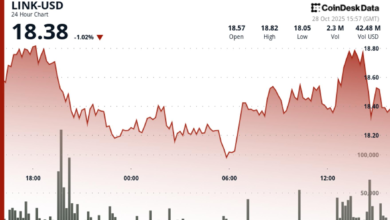Ripple’s XRP Banned From Being Used by WazirX to Cover Platform Losses: Here’s Why


The court affirmed that the users’ XRP remains their property, reinforcing that cryptocurrency is legally recognized as a protected asset.
An Indian court has blocked crypto exchange WazirX from reallocating a user’s XRP to cover platform losses. The Madras High Court granted “interim protection,” affirming that the user’s digital assets remain their distinct property under Indian law. The ruling marks a key moment in the country’s evolving crypto jurisprudence.
The case stems from WazirX’s plan to apply a “socialization of losses” model after a $235 million exploit in July 2024. The exchange proposed spreading losses across all users, including those who held cryptocurrencies unrelated to the stolen ERC-20 tokens.
Court Upholds Crypto Ownership Rights
Justice N. Anand Venkatesh ruled that the loss-sharing approach should not affect the XRP holder. The user’s 3,532 tokens, valued at around $9,400, were acquired long before the hack. The judge held that XRP and ERC-20 assets are separate in nature and cannot be grouped together for recovery purposes.
The court further clarified that the user’s XRP remains their property and cannot be diluted to offset the exchange’s operational failures. In doing so, it reaffirmed that cryptocurrency qualifies as a form of property capable of being owned and protected under existing law.
To enforce this ruling, the judgment also invoked the Arbitration and Conciliation Act, ensuring the user receives legal safeguards until arbitration proceedings are concluded. WazirX must either deposit 956,000 rupees (about $11,500) in escrow or provide a bank guarantee for the same amount as interim protection.
WazirX Resumes Amid Key Legal Shifts
The Madras High Court decision comes as WazirX seeks to rebuild its operations following the prolonged suspension stemming from the 2024 breach. The platform resumed operations last week after the Singapore High Court approved its restructuring plan, with backing from nearly 95.7% of participating creditors.
WazirX previously attributed the exploit to North Korea’s Lazarus Group, which exploited a weakness in its multi-signature wallet setup. The hack forced the exchange offline for 16 months, prompting widespread debate about accountability and asset security in India’s crypto market.
You may also like:
Against this backdrop, legal observers see the latest ruling as a signal that Indian courts are beginning to recognize digital assets as protected property. The case follows a Bombay High Court decision rejecting similar loss-sharing measures by Bitcipher Labs. Notably, these developments could shape future disputes as India moves toward clearer crypto regulations.
Binance Free $600 (CryptoPotato Exclusive): Use this link to register a new account and receive $600 exclusive welcome offer on Binance (full details).
LIMITED OFFER for CryptoPotato readers at Bybit: Use this link to register and open a $500 FREE position on any coin!
Source link



